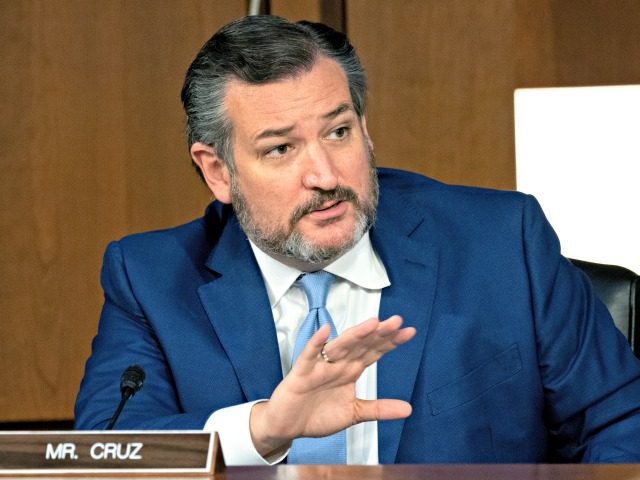Sen. Ted Cruz (R-TX) took the opportunity during his platform at the Amy Coney Barrett confirmation hearing on Tuesday to discuss one of the touchstone topics concerning Barrett being seated on the U.S. Supreme Court: the Roe v. Wade decision that made abortion on demand the law of the land, and the efforts of pro-lifers to reverse the ruling.
Cruz said:
I do think that it is interesting that our Democratic colleagues, No. 1, do not discuss what would actually happen if there came a day in which Roe v. Wade were overruled, which is namely that it would not suddenly become the case that abortion was illegal but rather it would revert to the status of the laws [as has] been for nearly 200 years of our nation’s history. Which is that the question of the permissibility of abortion is a question for elected legislatures at the state levels and at the federal level.
“It is difficult to dispute that there are great many jurisdictions, including jurisdictions like California and New York, who even if Roe v. Wade were no longer the law of the land, their elected legislatures would almost certainly continue unrestricted access to abortion with virtually no limitations,” Cruz said.
Moreover, Cruz pointed out, while Democrats seem concerned that Barrett would bring a pro-life component to the court, they are in no way concerned that liberal judges embrace abortion rights to the extreme, including those who voted against the federal ban on partial birth abortion — the practice of aborting a baby by delivering it legs first and then sucking out the brain.
“What I find interesting, though, it that our Democratic colleagues do not discuss what is really the radical position of the most liberal justices on the Supreme Court, which is no restrictions whatsoever are permissible when it comes to abortion,” Cruz said.
Cruz noted that he took part in the 2007 Gonzales v. Carhart case as an Amicus.
“The case concerned the constitutionality of the federal ban on partial birth abortion,” Cruz said. “That was legislation that passed Congress, signed into law, that made the really gruesome practice of partial birth abortion illegal.”
“An overwhelming majority of Americans believe partial birth abortion should be prohibited,” Cruz said. “Even those who identify as pro-choice.”
The High Court upheld the federal partial birth abortion ban on a 5/4 vote.
“That means there were four justices ready to strike it down,” Cruz said. “Ready to conclude that you can’t ban partial birth abortion. That you can’t ban late term abortion.”
The late Justice Ruth Bader Ginsburg, whose seat Barrett will fill if she is confirmed, wrote the dissent in Gonzales v. Carhart.
Since the Roe v. Wade decision in 1973, more than 59 million abortions have been performed across the United States.
Follow Penny Starr on Twitter

COMMENTS
Please let us know if you're having issues with commenting.